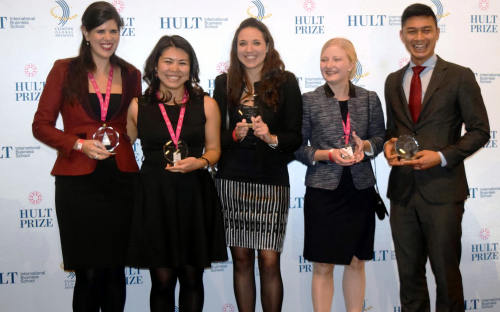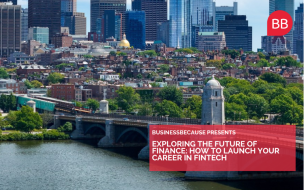The Hult Prize — which awards the winning team $1 million to implement their start-up idea — is organized by former US president Bill Clinton.
This year’s 200,000 participants were challenged to provide high-quality education to 10 million children living in urban slums and other marginalized neighbourhoods.
Among the institutions competing is Spain’s ESADE Business School, which reaches the Hult Prize final for the third consecutive year.
Somos, the start-up developed by the ESADE finalists, seeks to empower parents and caregivers to deliver education to their children through multimedia technology. The project has already taken its first steps in Mexico under the name Educuento.
“Over the past few months, this has become about so much more than just winning a competition,” said Anne Friedman, CEO of Somos and full-time MBA student at ESADE.
The ESADE team — consisting of five MBAs from the US, Indonesia, Germany, Mexico and Kyrgyzstan — will be up against fellow finalists from cities Oxford, Tampa, Toronto, Shanghai, and Chengchi.
“We need to win the $1 million because we have hundreds of parents and kids depending on us, and millions more we have yet to reach,” said Somos’ Anne. “Every day, we get messages from the moms and dads telling us how much they love the service and how it’s brought them closer to their kids.”
Enthusiasm around the Hult Prize signifies a bigger trend in business education: students’ search for careers that provide “social impact”.
“Graduates are looking for meaningful careers — not just jobs in which they merely get a paycheck,” said Jennifer Griffin, professor in the Public Policy Department at GWU School of Business.
For instance, as part of the annual Impact Challenge, teams of MBAs from Michigan Ross School of Business helped 60 high school students develop business plans for Brightmoor Maker Space, a proposed community workshop and incubator in Detroit.
The General Motors-sponsored initiative “demonstrates the power of business to be a force for positive change”, said Sott DeRue, Michigan Ross associate dean and director of the Sanger Leadership Center.
“Many students come to Michigan Ross because they want to leverage business to have an impact,” he added.
It is not just Michigan Ross that has students chomping at the bit to impact society.
The newly-reformed Center for Social Sector Leadership at California’s Haas School of Business aims to groom a new generation of future business leaders to foster social impact across sectors.
“The biggest challenges we face as a society cannot be addressed by only government, only the private sector, or only non-profits,” said Ben Mangan, executive director of the Center. “The future requires collaboration.”
Top business schools have sought to attract socially minded entrepreneurs to their MBA programs.
Saïd Business School this summer awarded two new scholarships for the Oxford MBA program through the Global Shapers Community — a network of hubs led by young people who are considered exceptional in their potential, their achievements, and their drive to make a community contribution.
“The uncertain world needs talented young people who are committed to making a difference,” said Peter Tufano, dean of Saïd Business School, who can inspire and influence, and who have the potential to lead and shape the future.
One recipient, Tana Jamboldor, founded a scholarship program in 2011 to identify and prepare outstanding Mongolian high school students for admissions to top universities abroad.
“It is not just about getting the know-how for building the particular business endeavour that I want to pursue after my MBA,” she said; it's also about bringing back new ideas to her home nation.
Another example of business schools promoting social impact is the growing number of sustainability programs being founded. Imperial College Business School in July launched a new master’s degree focused on climate change, while both INSEAD and NYU Stern have recently announced major sustainability initiatives.
“Business schools are educating tomorrow’s business leaders and sustainability must be part of that future,” said Tima Bansal, Canada research chair in business sustainability at Ivey Business School.
Already, this is changing the career destinations of MBA students.
Frank Wijen, who leads Sustainable RSM, the sustainability initiative at Rotterdam School of Management, said there is an “increasing interest among students to find an employer who not only offers decent pay, but who ‘makes a difference’”.
RECAPTHA :
e1
e3
33
45








